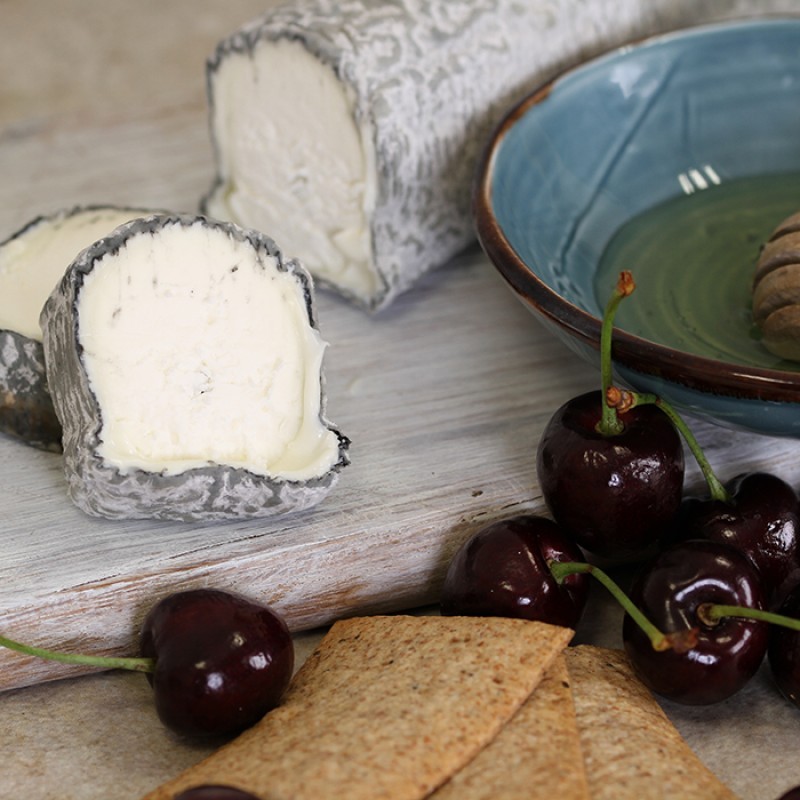
A Cheese for all Seasons
Most people are surprised to discover that the principles of seasonality apply to cheese. In this great blog, Diane explains the subtitles in flavour,


Most people are surprised to discover that the principles of seasonality apply to cheese. In this great blog, Diane explains the subtitles in flavour,
We have built our entire business on the principles of seasonality and provenance here at Provender Brown and that is especially true when it comes to our pride and joy - cheese! Even after all these years in business, a gin revolution and an explosion of fantastic artisan producers, cheese remains our most popular product, and as result of that, the one we spend the majority of our time sourcing, tasting and perfecting.
Most people are surprised to discover that the principles of seasonality apply to cheese. We’ve gotten so used to buying the mass market stuff all year round from the supermarkets that the subtleties in flavour, texture and availability have escaped most of us. Even here at Provender Brown there are artisan cheeses, from speciality producers that are yours to buy 52 weeks of the year.
So what makes a cheese Spring like, or better in winter or go completely out of stock when autumn comes round? Well, if you think in simple terms, what goes in must come out! So the diet of the cows, goats and sheep that are being fed for cheese production affects the flavour of their milk and in turn, the flavour of the cheese.
Cows are milked year-round so availability is ample. However, if you’re eating artisan cheeses you’ll find that cheese made when grass is newly grown will taste fresher and lighter than a cheese made when the grass is getting towards the end of summer.
Think about it – in spring, summer and early autumn you can see fresh grasses, flowers and herbs. This makes for a wonderful mix of natural nutrients go into the milk and ensures complexity and depth of flavour and texture. During the colder months, most animals are eating dried hay and grasses which bring a different texture and flavour to the milk. We should say that that’s the well cared for ones! Mass market producers will feed their herd silage during winter which although not bad for the animal, will have a negative effect on the milk. Luckily for you, we only buy from reputable producers we trust and know.
Sheep Cheese and Goat Milk Cheese
Goats and sheep tend to lactate naturally between March and October and so cheese made from this milk will always taste better – it is worth noting though that if the climate is warmer there may be an extra month and reversely if it's colder, the season will be shorter.
In recent years though, artisan dairy farmers have begun to stagger the breeding season to ensure a fresh supply throughout the year
Aged Cheese Varities
Although far more available all year round, aged cheeses still follow the seasons. The cheese will be made ‘in-season’ and then allowed to mature.
Expert Cheesemongers
Of course, the whole tracking of how a Cornish countryside or Aberdeenshire meadow is growing , the nuances of an animal’s diet or when a particular cheese has been placed onto shelves to mature is a mind-blowing exercise - which is why we do it all for you! Here at Provender Brown we are self-confessed cheese geeks and we see it as our responsibility to ensure that everything sitting in our cheese counter is every bit as delicious in Spring as it is in Winter.
This might mean that there are certain cheeses only available for a few weeks each year; and it might mean that we have more of one type than another as the months roll by. But if you trust us, and if you open your mind to trying new and wonderful flavours, we promise you you will never be disappointed.
Pop into the deli and follow our cheeses of the month which are all chosen to reflect ‘what’s good’ that month. If you let us know which cheeses you like to eat then we’ll recommend a few alternatives for you to expand your cheesy horizons.